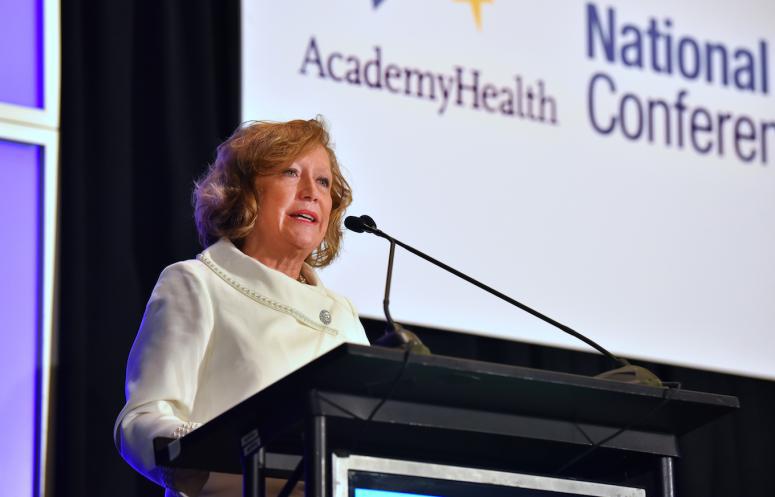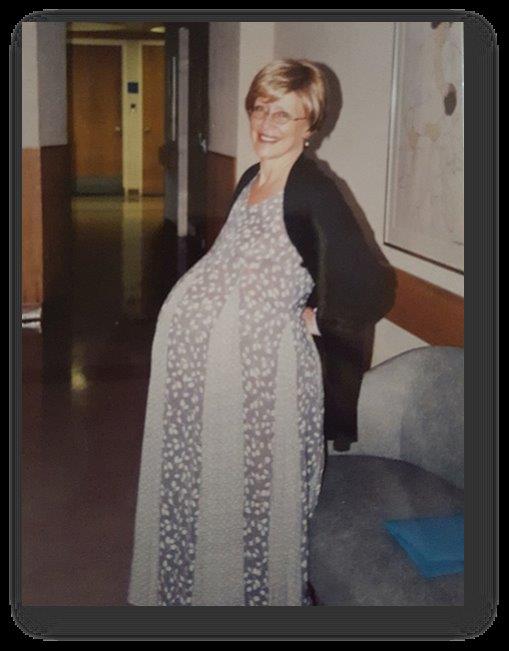
This December 1 marked 20 years since I received a call that marked the beginning of my cancer journey. As I reflected on my cancer journey with my three sisters, I was surprised by my emotional reactions and the questions that emerged. Did cancer change me? Has it helped make me the woman I am today – personally and professionally? Yes, and no.
While each person’s illness experience is unique in many ways, I also believe we often share similar moments and so I thought I’d share my own experience to invite discussion and reflection.
The Call
I was sitting at my desk at AHRQ (I was the Deputy Director then) having cleared my calendar to work on an article about the State Child Health Insurance Program. The surgeon called to let me know that I did, in fact have breast cancer. In of itself, that news is hard. The fact that I was 10 weeks pregnant with twins made it simply unfathomable. I left the office for what turned out to be an extended cascade of second opinions, false alarms, and surgery. I didn’t know then what this journey would mean for me – what it would change and what it wouldn’t.
What Cancer Did Not Change
During those initial weeks and months, much of what I read and heard emphasized the transformational impact of a cancer diagnosis – how I would never be the same again. So, I often wondered “What am I missing?” and “Is there something wrong with me?” because for me it did not change my essential self. In fact, it reinforced two aspects at my core: my basic personality and my professional motivation.
For anyone who knows me, you know that I value family and traditions above all else, that I experience joy in the quiet moments of cooking, when my mind can escape into the sensations of touch, sight, smell and taste, and that laughter and fun are integral to my every day. I maintained these aspects of my personality throughout my treatment. I spent many hours in the cocoon of love that my husband and sisters created, connecting and finding humor despite what I was facing.
Professionally, cancer deepened my commitment to evidence both in terms of creating it and helping to apply it equitably so that all people benefit. The first year of my cancer journey underscored for me in the most tangible (and yes, frightening) ways good data and evidence are needed to inform my every decision. What did we know about outcomes of breast cancer during pregnancy? What would be the impact of second trimester chemotherapy on my babies? Could I breastfeed or should I start on Tamoxifen immediately after giving birth? These are just a few of the many, many times I wished there had been better evidence that was relevant to me and my situation that had adequate specificity to help my clinicians and me choose among bad and very bad options.
Beyond access to quality evidence, my cancer journey made plain the critical importance of access to excellent care. My education, my networks, and my privilege all contributed to me reaching this 20-year anniversary. So many other women in this country face barriers to excellent care that I do not, especially women of color. Much has been said and written about the deadly impact of structural racism on our health care system – especially this last year. To come to terms with the lack of progress in health disparities and equity over these 20 years is painful but necessary. As James Baldwin wrote: “Not everything that is faced can be changed, but nothing can be changed until it is faced.”
What Cancer Did Change
In subtle ways that creep up on you, the cancer experience is deeply embedded in one’s psyche, it seeps into one’s very fiber and surfaces at times when you least expect it. Three moments in particular stand out for me.
My husband and I were sitting with our financial planner sometime after my fifth anniversary and talking about the twins’ college funds and our retirement. I came out of that meeting surprisingly happy and smiling. I realized that I was finally thinking again about the long term. My time horizon had shifted to looking beyond each day, each month, each year. I was happy.
The second occasion was after a visit to my oncologist, who ended the visit by saying “Well this is goodbye.” I must have looked puzzled as she then explained, “You are now at 10 years. You do not need to be followed by an oncologist anymore.” As I walked out to the parking lot, I had a silly grin on my face and felt like a heavy weight had lifted from my shoulders. You don’t realize what you are carrying until it is gone.
The final moment was when my twins graduated from high school in 2019. There was a sentence on a continuous loop in my head: “I am here to see this!” I did not tear up as I thought I would. That happened as I walked with my daughter on the Ohio State campus during her summer orientation (my husband accompanied our son to his orientation). I watch this lovely young woman walking in front of me and marveled at the joy of seeing her become who she is. Cancer also makes you much less tolerant of the unimportant in your life. You have a more singular focus. To be there – physically and emotionally for your loved ones. Each birthday, each holiday celebration is a gift.
Those who have worked with me may have heard me reference Kierkegaard’s view that life is lived forward but understood backward. As I reflect on this 20-year milestone, I’m filled with a new sense of resolve. We have so much work to do to realize the promise health services research holds for quality equitable care for all. May our collective sense of long-term perspective, unwavering commitment, and gratitude propel us to make the progress so desperately needed.
